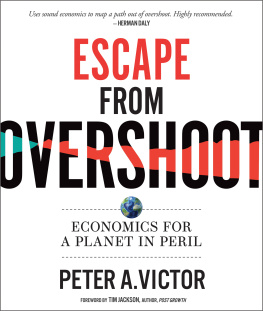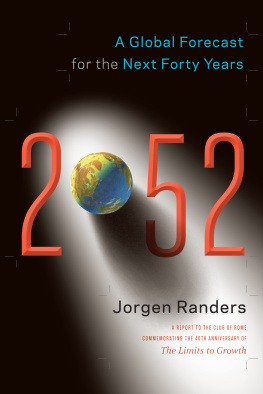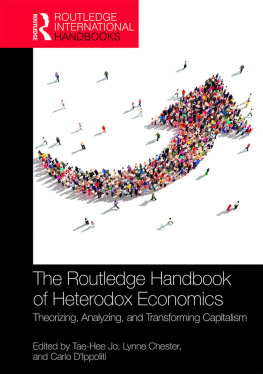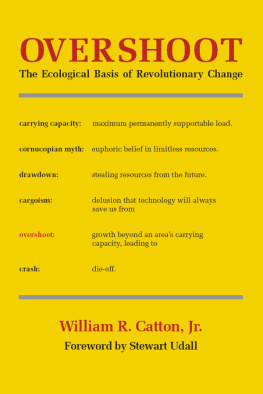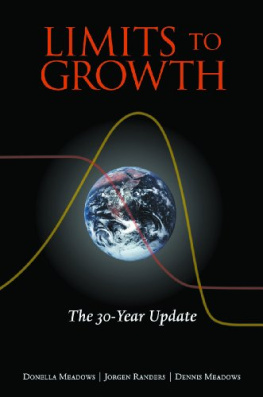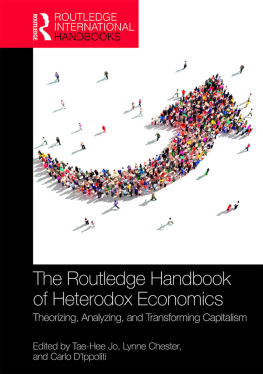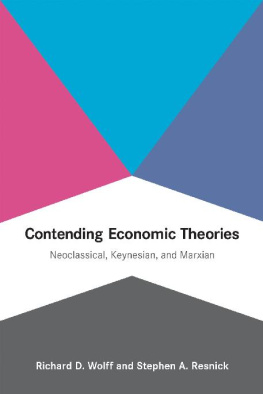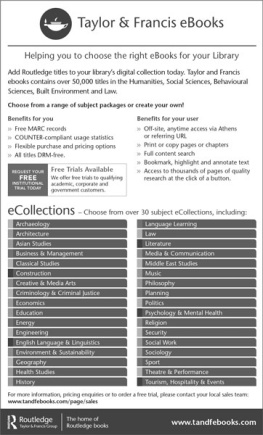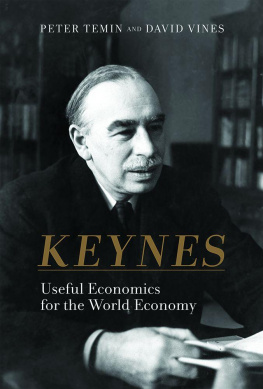Table of Contents
Landmarks
List of Pages
Acknowledgments
Normally, when authors thank their editor, they do so after thanking everyone else who helped them bring their idea for a book to fruition. In this instance that would be inappropriate, since the idea for this book was Rob Wests, the Acquisitions Editor at New Society Publishers, not mine. Early in February 2021 Rob contacted me. He had watched the online Gideon Rosenbluth Memorial Lecture I had just given and suggested that I write a future-oriented book, based on my many decades of work on economy and environment. It would be heavily illustrated, with a sparse text, written for a wide audience. This book is the result, not only of Robs original suggestion, but of the generous assistance he and his colleagues provided throughout the project. I particularly want to thank Murray Reiss for his excellent copyediting. I am extremely grateful to them all.
It is with great pleasure and deep gratitude that I thank Herman Daly, Martin Sers, and Peter Timmerman for their learned help in writing this book. They commented on drafts of each chapter, and their suggestions, criticisms and support are reflected on every page. Sadly, after the book was completed, Herman passed away surrounded by his family. I and so many others, miss him dearly.
I also thank Ed Hanna who has, for so many years, helped me understand the natural sciences and engineering, and did so once again when I wanted to express complicated scientific ideas in simple terms.
This book would not exist were it not for all those who wrote the many reports, books, and papers on which I drew, especially for the 170 images that it contains. Two contributors to the literature on overshoot that stand out are William Catton Jr., whose book Overshoot, The Ecological Basis of Revolutionary Change, published in 1982, explained how todays profligate use of what the Earth provides comes at the expense of our descendants, and William Rees, originator and co- developer of the ecological footprint, who has written several recent, influential scientific papers on overshoot. I am especially appreciative to all those who made their images available through a Creative Commons licence and to those who granted me permission to reproduce their work. I have tried to name all of them in the book and apologise if I have missed anyone.
The book is dedicated to my three friends from undergraduate days at Birmingham University: David Franks, Tony Klug, and Lance Blackstone. I have never forgotten how supportive they were as I plunged myself into the study of economics all those years ago. Im so glad we have remained friends despite living so far apart. Many years later, I befriended Tim Jackson, a man whose range and depth of knowledge and remarkable talents have few equals, and with whom I have written many papers and reports of which I am very proud. I was delighted when Tim agreed to write the foreword to this book and thank him for doing so.
Finally, to Maria, my brilliant, loving, principled, tenacious wife of 50 years without her encouragement and patience, this book would never have been written. I hope that you, dear reader, will find that it was worth the effort.
About the Author

P eter A. V ictor is Professor Emeritus at York University. He was awarded a PhD in economics from the University of British Columbia in 1971 and has worked for 50 years in Canada and abroad as an academic, consultant, and public servant specializing in ecological economics and alternatives to economic growth. Peter sits on the Honorary Board of the David Suzuki Foundation and the Circle of Ecological Economics Elders, is chair of the Science Advisory Committee of the Footprint Data Foundation, and is an elected member of the Royal Society of Canada. He was the recipient of the Molson Prize in the Social Sciences from the Canada Council for the Arts in 2011 and the Boulding Memorial Prize from the International Society for Ecological Economics in 2014. He is the author of six previous books, including Managing without Growth. He lives in Toronto, Ontario.
Thank-you for purchasing this print book and supporting the author and independent publishing. To enrich your experience, you can download a free color edition of the ebook at the following link. However wed kindly ask you not to share this link, thereby continuing to ensure the viability of our publishing as we work together to build a new society.
newsociety.com/pages/escape-from-overshoot-colour-ebook
About New Society Publishers
New Society Publishers is an activist, solutions-oriented publisher focused on publishing books to build a more just and sustainable future. Our books offer tips, tools, and insights from leading experts in a wide range of areas.
Were proud to hold to the highest environmental and social standards of any publisher in North America. When you buy New Society books, you are part of the solution!
At New Society Publishers, we care deeply about what we publishbut also about how we do business.
- This book is printed on 100% post-consumer recycled paper, processed chlorine-free, with low-VOC vegetable-based inks (since 2002).
- Our corporate structure is an innovative employee shareholder agreement, so were one-third employee-owned (since 2015)
- Weve created a Statement of Ethics (2021). The intent of this Statement is to act as a framework to guide our actions and facilitate feedback for continuous improvement of our work
- Were carbon-neutral (since 2006)
- Were certified as a B Corporation (since 2016)
- Were Signatories to the UNs Sustainable Development Goals (SDG) Publishers Compact (20202030, the Decade of Action)
To download our full catalog, sign up for our quarterly newsletter, and to learn more about New Society Publishers, please visit newsociety.com
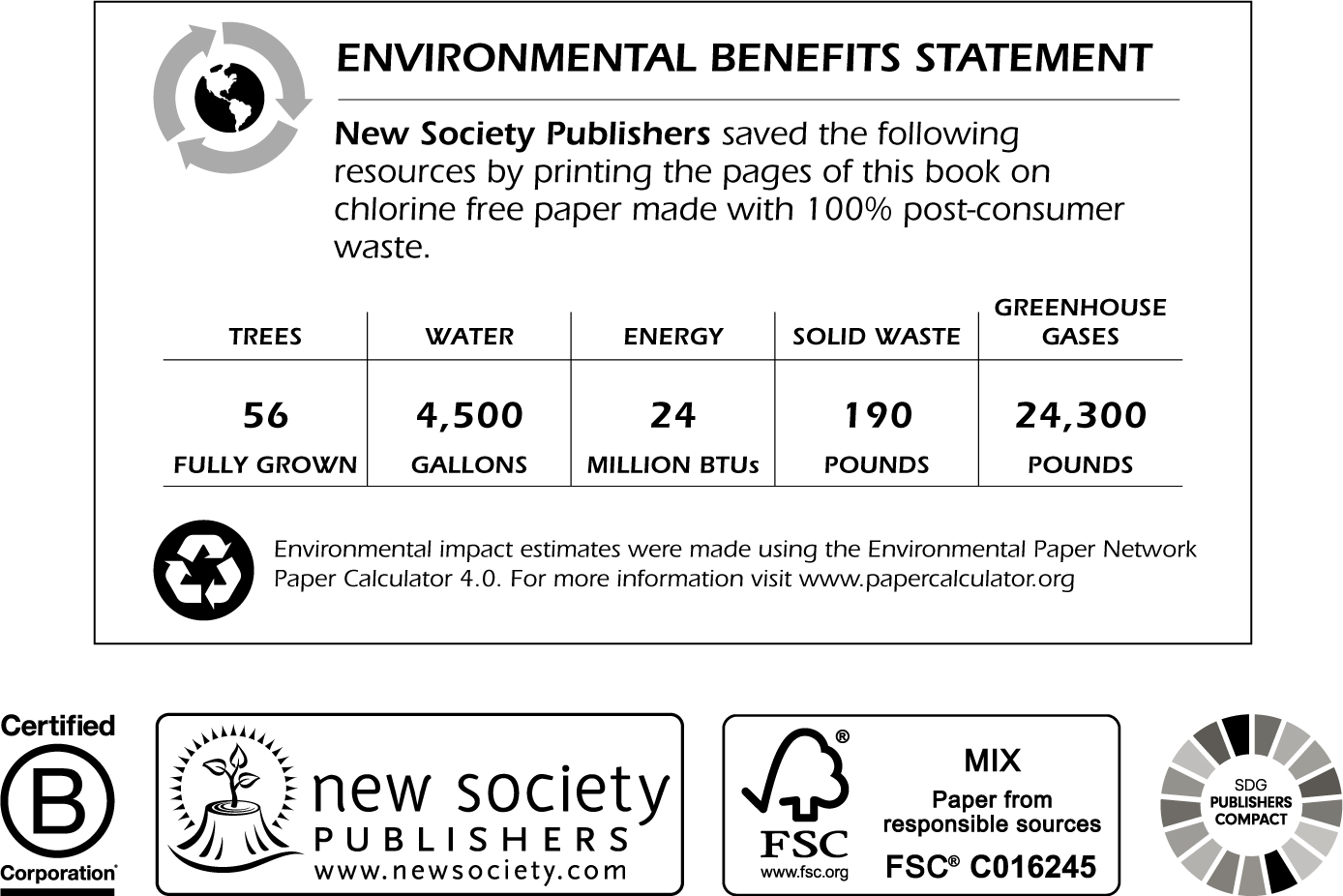
A Guide to Responsible Digital Reading
Most readers understand that buying a book printed on 100% recycled, ancient-forest friendly paper is a more environmentally responsible choice than buying one printed on paper made from virgin timber or old-growth forests. In the same way, the choices we make about our electronic reading devices can help minimize the environmental impact of our e-reading. Want to learn more?
Issues and Resources
Before your next electronic purchase, find out which companies have the best ratings in terms of environmental and social responsibility. Have the human rights of workers been respected in the manufacture of your device or in the sourcing of raw materials? What are the environmental standards of the countries where your electronics or their components are produced? Are the minerals used in your smartphone, tablet or e-reader conflict-free? How can you help advocate for greater Corporate Social Responsibility at all steps of the manufacturing process? Here are some resources to help you learn more:
- The Greenpeace Guide to Greener Electronics
- Global:Witness: Conflict Minerals
- Slavery Footprint
Recycle or Repair?
In 2018 an estimated 49.8 million metric tonnes of e-waste was generated worldwide. Toxic chemicals in electronics, such as lead, cadmium and mercury, can leach into the land and water over time or can be released into the atmosphere, impacting nearby communities and the environment. The links below will help you to recycle your electronic devices responsibly:

